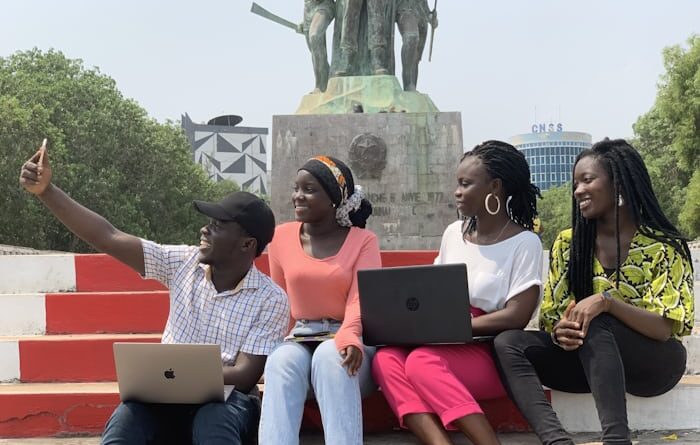Landmark University Courses and Fees: Your Complete Guide for 2025/2026
Choosing the right university is a significant decision, and understanding the courses offered and associated fees is essential.
Landmark University (LMU), located in Omu-Aran, Kwara State, Nigeria, is renowned for its commitment to academic excellence and character development.
This guide provides prospective students and parents with detailed information on LMU’s undergraduate programs and the corresponding fees for the 2025/2026 academic session.
About Landmark University
Established in 2011 by the Living Faith Church Worldwide, Landmark University aims to raise a new generation of leaders through quality education.
The university offers a range of undergraduate programs across various disciplines, ensuring that students receive a holistic education that combines academic rigor with moral and spiritual development.
Undergraduate Programs Offered at Landmark University
LMU offers a diverse array of undergraduate programs designed to equip students with the knowledge and skills needed to excel in their chosen fields.
The programs are structured to provide both theoretical knowledge and practical experience, ensuring that graduates are well-prepared for the challenges of the professional world.
1. Agriculture and Agricultural Sciences
- Agricultural Economics: Focuses on the economic aspects of agriculture, preparing students for roles in policy-making, research, and agricultural business management.
- Agricultural Extension and Rural Development: Equips students with the skills to promote agricultural development in rural areas through extension services and community engagement.
- Agronomy: Deals with the science of soil management and crop production, preparing students for careers in crop production and land management.
- Animal Science: Focuses on the biology and management of livestock, preparing students for roles in animal husbandry and veterinary services.
- Soil Science: Studies the formation, classification, mapping, and management of soils, preparing students for careers in land use planning and environmental conservation.
2. Engineering and Technology
- Agricultural Engineering: Combines principles of engineering with agricultural sciences to develop machinery and systems for farming.
- Civil Engineering: Focuses on the design, construction, and maintenance of infrastructure such as roads, bridges, and buildings.
- Computer Science: Covers the study of computer systems, programming, and data management, preparing students for careers in IT and software development.
- Electrical and Information Engineering: Deals with the study of electrical systems and information technology, preparing students for roles in electronics and telecommunications.
- Mechanical Engineering: Focuses on the design, analysis, and manufacturing of mechanical systems, preparing students for careers in manufacturing and automotive industries.
- Mechatronics Engineering: Combines mechanical, electrical, and computer engineering to develop intelligent systems and robotics.
3. Sciences
- Biochemistry: Studies the chemical processes within and related to living organisms, preparing students for careers in healthcare, research, and pharmaceuticals.
- Biology: Focuses on the study of living organisms and their interactions with the environment.
- Chemistry: Deals with the study of substances, their properties, and reactions, preparing students for roles in research and industry.
- Industrial Chemistry: Applies chemical principles to industrial processes, preparing students for careers in manufacturing and quality control.
- Industrial Mathematics: Combines mathematical theory with practical application in industry, preparing students for roles in data analysis and operations research.
- Industrial Physics: Applies physics principles to industrial processes, preparing students for careers in manufacturing and technology.
- Microbiology: Studies microorganisms and their effects on humans, animals, plants, and the environment.
- Physics: Focuses on the study of matter, energy, and the fundamental forces of nature.
4. Social Sciences and Management
- Accounting: Covers the principles of financial accounting, preparing students for roles in finance and auditing.
- Banking and Finance: Focuses on the study of financial systems, institutions, and markets, preparing students for careers in banking and investment.
- Business Administration: Deals with the study of business operations, management, and strategy.
- Economics: Focuses on the study of production, distribution, and consumption of goods and services.
- International Relations: Studies the relationships between countries, focusing on diplomacy, conflict resolution, and international organizations.
- Political Science: Deals with the theory and practice of politics and government.
- Sociology: Focuses on the study of society, social institutions, and social relationships.
Tuition and Fees for 2025/2026 Academic Session
Understanding the financial commitment required for university education is essential for planning.
Below is a breakdown of the tuition and associated fees for various undergraduate programs at Landmark University for the 2025/2026 academic session:
| Program | Tuition Fee (₦) | Acceptance Fee (₦) | Hostel Fee (₦) | Total Fee (₦) |
|---|---|---|---|---|
| Agricultural Courses | 595,000 | 10,000 | 100,000 | 705,000 |
| Agricultural Engineering | 645,000 | 10,000 | 100,000 | 755,000 |
| Engineering Courses | 675,000 | 10,000 | 100,000 | 785,000 |
| Biochemistry | 577,000 | 10,000 | 100,000 | 687,000 |
| Computer Science | 615,000 | 10,000 | 100,000 | 725,000 |
| Industrial Mathematics | 557,000 | 10,000 | 100,000 | 667,000 |
| Sociology | 532,000 | 10,000 | 100,000 | 642,000 |
Note: The above fees are indicative and subject to change. It is advisable to consult the official university portal for the most accurate and up-to-date information.
Payment Options
Landmark University offers flexible payment options to accommodate the financial capabilities of students and their families. The payment plan includes:
- Installment Payments: Students can pay their fees in installments, with the first installment due at the beginning of the semester and the final installment due before the end of the semester.
- Online Payment: Payments can be made online through the university’s official portal using various payment methods.
- Bank Payments: Students can also make payments at designated banks using the university’s payment codes.
Scholarships and Financial Aid
Landmark University is committed to making education accessible to deserving students.
The university offers various scholarships and financial aid programs to support students who demonstrate academic excellence and financial need. These programs include:
- Merit-Based Scholarships: Awarded to students who achieve outstanding academic performance.
- Need-Based Financial Aid: Provided to students who require financial assistance to pursue their studies.
- Sports Scholarships: Offered to students who excel in sports and contribute to the university’s athletic programs.
Prospective students are encouraged to apply for these scholarships during the admission process.
Admission Requirements
To gain admission into Landmark University, prospective students must meet the following requirements:
- UTME Score: A minimum score as stipulated by the university for the desired program.
- O’Level Results: At least five credits in relevant subjects, including English Language and Mathematics.
- Post-UTME Screening: Participation in the university’s screening process, which may include an aptitude test and oral interview.
- Acceptance Fee: Payment of the non-refundable acceptance fee upon admission.
It is advisable to consult the university’s official admission portal for detailed and program-specific requirements.
Campus Life and Facilities
Landmark University offers a conducive environment for learning and personal development. The campus is equipped with modern facilities to support academic and extracurricular activities:
- Lecture Halls: Spacious and well-equipped lecture halls for effective learning.
- Library: A well-stocked library with a wide range of academic resources.
- Hostels: Comfortable and secure accommodation facilities for students.
- Sports Facilities: Various sports facilities to promote physical fitness and recreation.
- Chapel: A place for spiritual development and worship.
The university also organizes various extracurricular activities, including clubs, societies, and events, to foster holistic development.

